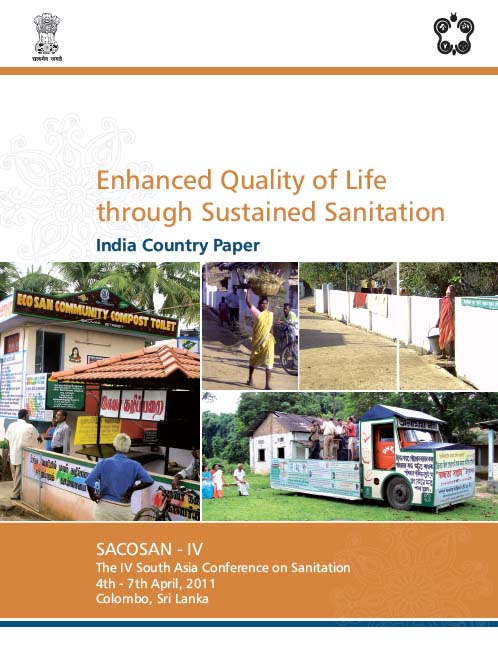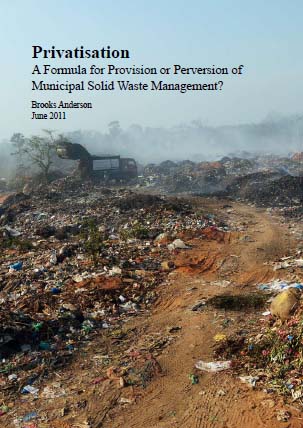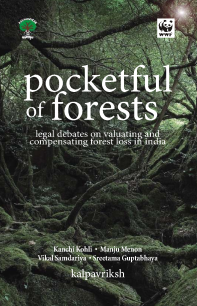Governance
Urgent solidarity appeal for victims of eviction of 15 families from Lamphelpat wetlands in Manipur, NE India on 6 June 2011
Posted on 25 Jun, 2011 01:27 PM
Date of Incident: 6 June 2011 at around 7 A.M
Place of Incident: Yaipha Leikai, Lamphelpat, Under Lamshang Assembly Constituency, Imphal West District, Manipur, India
Victims/Community Affected: 15 Households, 81 persons belonging to the Meitei People of Manipur
The displaced victims are mostly women, children and elderly people
Event Description:
On 6 June 2011, at least fifteen (15) houses of Yaipha Leikai village, Lamphelpat Wetland near Employment Exchange, Imphal West District, Manipur in India’s North East had been destroyed by Manipur Police from the Lamphel Police Station under the orders of the Government of Manipur on 6 June 2011 as a means to evict the villagers to make way for the Government plan for building the National Institute of Technology (NIT) complex and a water body at Lamphelpat wetlands.
Prior to the eviction, an order issued by the Sub Divisional Officer, Lamphel, Imphal West on 3 June 2011 was served to the villagers of Yaipha Leikai only on Sunday, the 5 June, 2011 around 10 a.m in the morning asking them to dismantle their houses the same day before 5 in the evening. The villagers were completely taken by surprise as most of the senior household occupants were off to work in Lamphelpat Wetlands for fishing and many went out to earn as daily labourers. The eviction drive was carried out on 6 June 2011, the next day from around 7 a.m in the morning. The eviction process was overseen by State Works minister K Ranjit, PDA chairman Kh Loken among other officials of different departments and police officials of Lamphel Police Station, Imphal West District. The eviction was carried out by using earthmovers and other heavy machineries despite the angst of the residents, who have resided in the area for more than four decade.
Taking steps toward marine and coastal ecosystem based management: An introductory guide by UNEP
Posted on 25 Jun, 2011 09:28 AMAn important aim of this guide is to facilitate the implementation of UNEP’s overarching Ecosystem Management Programme and new Marine and Coastal Strategy in countries and regions in line with its Medium Term Strategy 2010-13.
Assessment study of impact and sustainability of Nirmal Gram Puraskar – A report by CMS Environment
Posted on 24 Jun, 2011 11:02 PMNGP was initiated in Oct 2003 to encourage Panchayati Raj Institutions (PRIs), block and districts to take up sanitation promotion, a post achievement, award-cum-fiscal incentive scheme. The eligibility criteria for the PRIs to receive NGP include: Gram Panchayats, Blocks and Districts, which achieve 100 per cent sanitation coverage in terms of: (1) 100 per cent sanitation coverage of individual households (2) 100 per cent school and anganwadis sanitation coverage (3) Free from open defecation and (4) Clean environment maintenance (liquid and solid waste management).
Enhanced quality of life through sustained sanitation - India country paper for South Asia Conference on Sanitation
Posted on 24 Jun, 2011 10:09 PM This India Country Paper on Enhanced Quality of Life through Sustained Sanitation was prepared for South Asia Conference on Sanitation (SACOSAN) IV held at Colombo, Sri Lanka in April, 2011.
This India Country Paper on Enhanced Quality of Life through Sustained Sanitation was prepared for South Asia Conference on Sanitation (SACOSAN) IV held at Colombo, Sri Lanka in April, 2011.
In rural sanitation, India’s flagship rural sanitation programme, the Total Sanitation Campaign (TSC), continues to be implemented with renewed vigour, and improvements in multiple facets of the programme. The TSC programme was given a further boost with the introduction of the Nirmal Gram Puraskar (NGP), an innovative incentive scheme for Gram Panchayats, Blocks and Districts. The rural sanitation sector has continued to receive increasing budgetary support.
Is privatisation a formula for provision or perversion of municipal solid waste management?
Posted on 24 Jun, 2011 09:17 PM
In 2000, in response to a Supreme Court order, the Government of India formulated and enacted the Municipal Solid Wastes (Management and Handling) Rules (hereafter referred to as the Rules) to mitigate a burgeoning solid waste crisis. Pollution from haphazard municipal solid waste disposal was gravely jeopardizing public health, thereby undermining the nation’s development gains.
The Rules’ prime objective was to protect public health and the environment by minimizing disposal of waste in landfills, thereby aligning the government’s municipal waste management policy with its commitments to international treaties to reduce greenhouse gas emissions, control the production of persistent organic pollutants, conserve finite resources, and achieve broad development targets.
Scaling up rural sanitation: Findings from the impact evaluation baseline survey in Madhya Pradesh
Posted on 24 Jun, 2011 03:43 PMThis report is a part of a series of papers that analysed the baseline data from all countries where the program was implemented.
Gravity based spring water supply systems in Vishakhapatnam: A sustainable solution to an age-old problem
Posted on 23 Jun, 2011 05:42 PM With an annual rainfall of more than 1200 mm, this region has truly pristine and under-developed ground water resources. The water related issues are more complex in the hilly areas. Some of the most concerning issues that affect the current water scenario in the Eastern Ghats are pollution of water sources (springs & streams) leading to poor health, illiteracy and ignorance resulting in improper hygiene and sanitation practices. The burden on women and children is also high since they have to walk a long distance to the springs/streams for fetching water.
Alternate management approaches for village water supply systems - Case studies from Maharashtra - A field note by WSP
Posted on 23 Jun, 2011 05:25 PMIt documents the approaches in a context where the state government agencies responsible for construction and management of rural water supply systems have been found to be facing limitations in O&M arrangements.
The traditional approach to provision of rural water supply in India has been supply driven, with emphasis on norms and targets and on construction and creation of assets, but with very little concern for sustainable arrangements for better management and maintenance of the facilities built. The viewpoint that users are ‘beneficiaries’ rather than empowered stakeholders among the service providers has led to alienation of the users.
Five years of special economic zones in India' - lecture by Dr. Partho Sarothi Ray, National Institute of Advanced Studies, June 27, 2011, Bangalore
Posted on 23 Jun, 2011 05:11 PM Organizer: National Institute of Advanced Studies
Organizer: National Institute of Advanced Studies
Venue: Lecture Hall, NIAS, IISc Campus, Bangalore
Description:
Five years have passed since the first United Progressive Alliance (UPA) government passed the Special Economic Zones (SEZ) Act in 2005. Altogether there are around 1200 SEZs in different phases of development today. Analyzing the development and distribution of SEZs in different parts of India in the last five years gives us some ideas about the political geography of special economic zones in India.
This talk will draw on this analysis and the personal experience of the speaker in struggles against various SEZs in India including the proposed POSCO SEZ in Orissa which has received a very strong farmers’ resistance.






